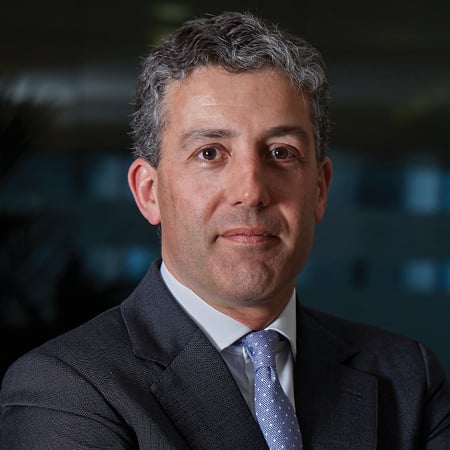Multi award-winning asset management firm Majedie was formed in London in 2002 when a team of fund managers decided to leave their big firm and set up something unique in the asset management arena. Current CEO Rob Harris remembers the early days fondly. “I was a fund manager back then, and had been for many years previously, and I really relished that early plate-spinning phase when we all mucked in to get Majedie off the ground,” he says. “Fast forwarding to 2011, the firm had grown considerably and so a more formal management structure was needed. I jumped at the opportunity to take on responsibility for the business side. For me the CEO role offers a real breadth of responsibility—not just within the business, but also externally, too—meeting with clients, understanding the business landscape, and taking Majedie forward.”
Majedie’s uniqueness as an asset management firm stems from several aspects. Firstly, it is independent, meaning that it isn’t under pressure from external shareholders. Every employee has equity in the business, and together they own a 75% stake.
Needless to say, the knock-on effect of this has been very positive for Majedie and its staff. “To us, real teamwork flows from that equity ownership—from every employee having a meaningful stake in the business, and from the empowering sense of independence when a majority of the company equity is owned by the staff. We think that fund management companies that are majority-owned by their employees, really are a breed of their own,” Rob says.
“We are incredibly fortunate to have brought together a group of people who are bright, hardworking, and really motivated to work as a team in our clients’ best interests. Active fund management is not a linear science and unfortunately in this industry hard work doesn’t guarantee good results. But I do feel that if a firm has a genuine collective energy, and managers have the freedom to express themselves, then good things can happen. I suppose that above all we have tried to engender a genuine sense of alignment with our clients—so all employees in the firm own a piece of the business, and they co-invest in our own funds alongside our clients.
“Also, with majority ownership, the old tradeoff between performing for existing clients and satisfying the demands of an external shareholder who wants to see business growth, can be replaced by a strong commitment to limited capacity. At heart, we are still big believers that fund management is a cottage industry—it’s simply easier to perform well with less assets under management.”



